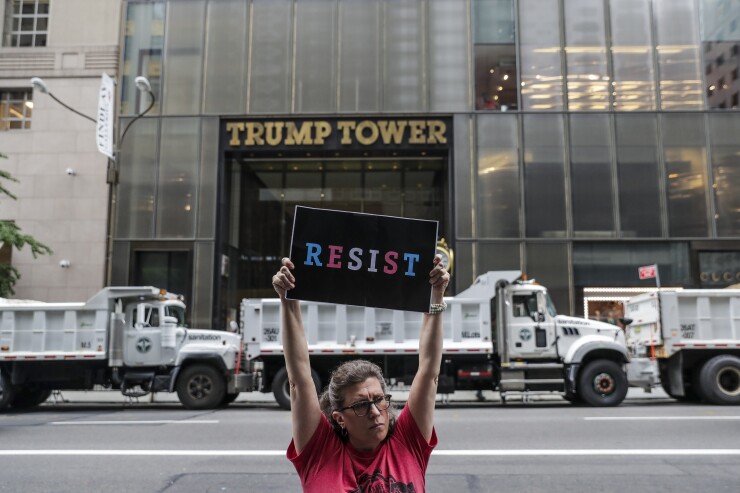It is hard to put aside one’s personal revulsion about the racially motivated clashes in Charlottesville, Va., and therefore to provide completely objective analysis about what this horrendous event means for banks. So I won’t even pretend to be objective. But I will try to be rational.
In February, I wrote in this publication about the growing difficulty for banks
“Historically, banks have focused their political activity on those issues that directly impact the bank or the industry, and have avoided taking public positions on broader political or social issues. The reasons are straightforward. Most banks serve a broad, politically diverse customer base and have an equally diverse group of employees. As a result, most banks have tried to take a middle road on politically sensitive or controversial issues. However, that road is getting increasingly narrow and harder to navigate.”
The only thing that has changed fundamentally in the last six months is that the middle road has narrowed further and, in some cases, disappeared completely. The tragic event in Charlottesville is a glaring example of an issue that has no middle ground. There is no right or left, there is only right or wrong.

The traditional stance of political neutrality is becoming more difficult to maintain and, in some cases, no longer viable. There are times, and this is one of them, that silence increases reputational risk rather than diminishes it.
Successful CEOs, especially at banks, do two things extremely well: They understand and manage risk, and they build, nurture and grow a positive and productive corporate culture. As we have seen with the continuing debacle at Wells Fargo, the two are inextricably linked. The mishaps in the delivery of consumer financial services are an immediate reflection on a bank’s leadership and culture, and the public takes persistent notice.
The
Most banks do not have the kind of high public profile of those represented on the councils. They are not faced with the decision of whether or not to distance themselves from a particular administration, issue or political party. However, this does not mean that these banks are immune to the potential reputational risk of an increasingly partisan and toxic political environment. The primary risk for most banks comes from inappropriate employee behavior and/or participation in activities that are anathema to the company’s values and offensive to the vast majority of Americans. Banks should not underestimate the reputational risk of guilt by association if an employee is exposed carrying a Nazi flag and a torch. Now that the hoods have come off, this type of exposure and association is a very real threat.
It is necessary, therefore, for bank executives to be prepared and proactive in defining, clearly and consistently, what constitutes appropriate political activity and what does not, both at the enterprise and employee level. Unfortunately, as the level of political and social discourse has sunk to new lows, it is also important to reinforce strongly and unambiguously what constitutes appropriate workplace speech and behavior. Some argue that these types of guidelines infringe on an employee’s First Amendment rights. This argument, of course, is nonsense. Most companies have an employee code of conduct that prohibits behavior that is offensive to other employees or could cause embarrassment to the enterprise. These policies in no way restrict an employee’s right to free speech. However, it is important to review these policies to ensure that they are clear and that there is consistent enforcement.
The message needs to be loud and clear, “You are free to march around with a Nazi flag or you can work here. You can’t do both.” The Bill of Rights does not require that companies support, encourage, or tolerate ignorance and hate. Ignorance may be protected by the Constitution but it does not entitle someone to a job. As Thomas Jefferson — a primary architect of the Bill of Rights, a committed patriot and a resident of Charlottesville, wrote — “If a nation expects to be both ignorant and free in a state of civilization, it expects what never was and never will be.”





